Childhood emotional neglect can direct you towards depression in adulthood. Let’s find out the signs of childhood emotional neglect, the effects of childhood neglect and what are the signs of depression caused by it in adulthood.
Your emotions are the most deeply personal, biological part of who you are. They are also your greatest resource for coping and strength.
Legions of people walk through decades of their lives completely unaware that they are missing something. They may look around, and they may see others living more fully, or with more color or vitality.
They may have a vague sense that something is not quite right.
But they are intelligent and competent and likable, and so they do okay. They put one foot in front of the other, and they take life step by step.
Doing what is expected, and providing what is needed, they have no idea that they’re more vulnerable to life’s challenges than other people are.
Related: The Lifelong Effects Of Childhood Emotional Neglect
Until unexpectedly their job changes or their child has a significant problem, or someone they love moves away or passes away.
Maybe it’s a problem in their marriage, or rejection, or a hurtful action directed at them, but something happens to throw them off their game.
Then they struggle mightily, and they sense that their struggle may be going too far, and they find that they are depressed. “Why is this so hard for me?” they wonder. “How did I end up here? Shouldn’t I be more resilient?”
For many of these fine people, the answer is, “Perhaps.”
Perhaps if you had received enough emotional attention in childhood you would now have access to your emotions in a more vibrant and helpful way.
Perhaps if your parents had noticed what you were feeling as a child, you would be noticing that now, yourself.
Perhaps if you had been filled with self-knowledge and self-care and self-love as a child, you would have them to rely on now, in your time of need.
Growing up in a household where feelings are not addressed enough (Childhood Emotional Neglect, or CEN) takes a remarkable toll on a developing child.
Not the least of which is this: It sets the child up to be more prone to depression throughout her lifetime, and to forever blame it on herself.
If you grew up without enough emotional validation and response from your parents (CEN), you probably did what most good children do: you automatically pushed your emotions away and walled them off.
This may have worked fairly well through your childhood, but now, in your adulthood, you need full and healthy access to your emotions.
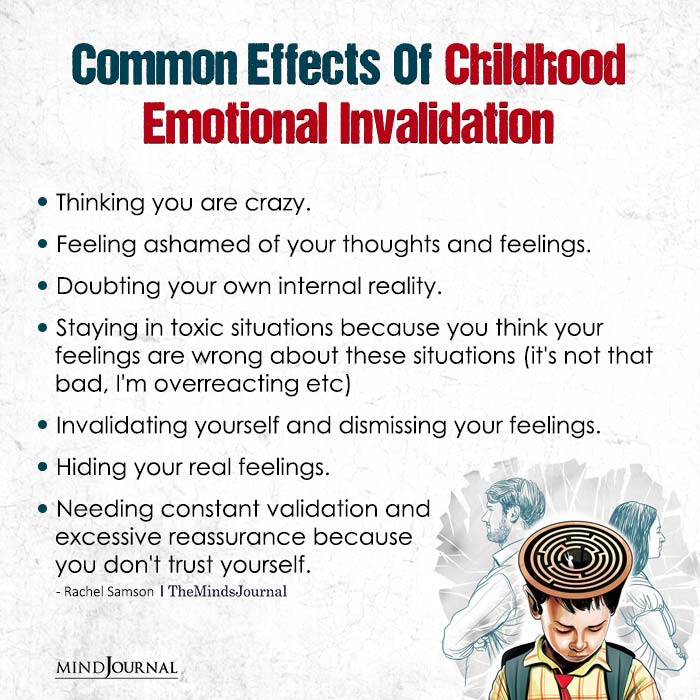
5 Ways Childhood Emotional Neglect Causes Depression in Adulthood
1. Your emotions are walled off.
Since you pushed them away as a child (to cope in your childhood home), you are now living without access to this rich, motivating, stimulating feedback system.
Related: 8 Things You Can Relate To If You Were Emotionally Neglected As A Child
2. You missed the emotion training course that other people got.
You grew up in an Emotion-Free Zone. No one taught you how to identify, express, manage, or use your emotions.
3. CEN makes you feel alone in the world.
When no one notices what you’re feeling enough as a child, and when the response to your emotional needs is tepid or absent, you learn that you cannot (or should not) rely on others emotionally.
4. You are prone to directing your anger inward.
Anger can be an empowering, useful emotion when you know how to use it.
If your anger was not accepted when you were a child, and if you were not taught how to use it, you are at risk of turning it against yourself.
5. You are inclined to feel shame.
Growing up with CEN, the powerful message that your emotions either don’t matter or are bad can easily make you feel ashamed for having them. Yet your emotions are wired into you. You can’t have emotions. The result: shame.
And now, after all that bad news, I have some very good news for you. Now that you see and understand the effects of Childhood Emotional Neglect, you can heal it yourself.
When you do this, you will not only reduce your susceptibility to depression, but you will also improve many other areas of your life as well.
Related: Love Starved: How Childhood Emotional Neglect Breaks You As An Adult
3 Ways to Become Less Vulnerable to Depression
1) Start working on your CEN.
The best thing about CEN is that it can be healed. You can break through that wall that you built to block off your feelings in childhood.
You can begin to feel more varied emotions. You can learn how to use your anger in a healthy, protective way. You can learn the emotional skills that you missed.
2) Accept that your feelings are your friend.
Your emotions are a source of vitality and richness. Without them, you are living in a gray world, devoid of the color that others experience.
Reclaiming your feelings and learning to use them will connect you, relieve you, and enrich you.
3) Reach out
CEN taught you to circle your wagons, but those wagons are now holding you separate. Learning to let your wagons loosen will open the world to you. With more people on your side of the wall, you will no longer feel so alone.
Related: Overcoming Childhood Emotional Neglect: 4 Steps to Recovery
Childhood Emotional Neglect (CEN) is invisible. Yet it makes you struggle with emotions throughout your adult life and makes you more prone to depression.
To find out if you are affected by CEN, take the Childhood Emotional Neglect Test.
Want to know more about how childhood emotional neglect can cause depression? Check this video out below!
Written by Dr. Jonice Webb
This article was originally published on Psychcentral.com and
has been republished here with the permission of the author
Source - DrJoniceWebb.com
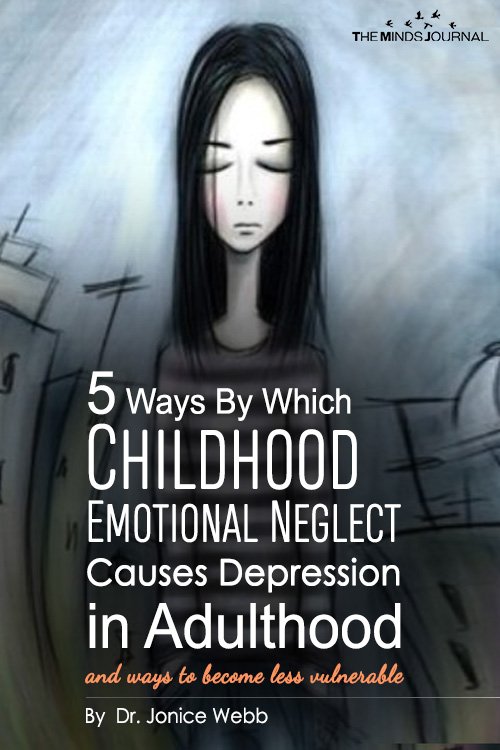
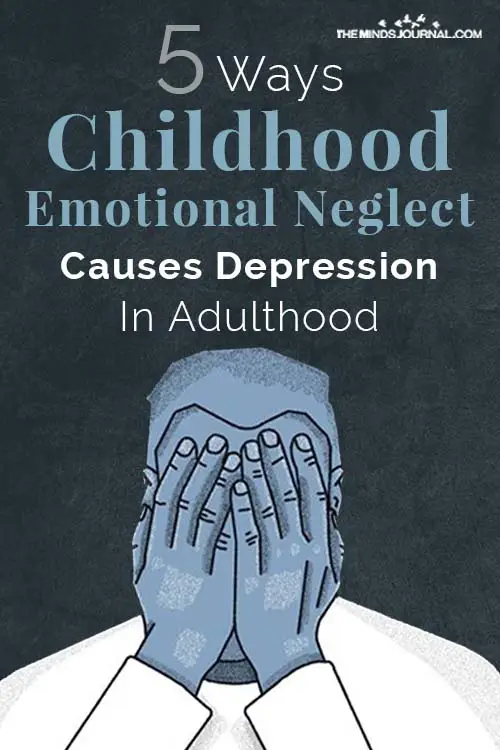
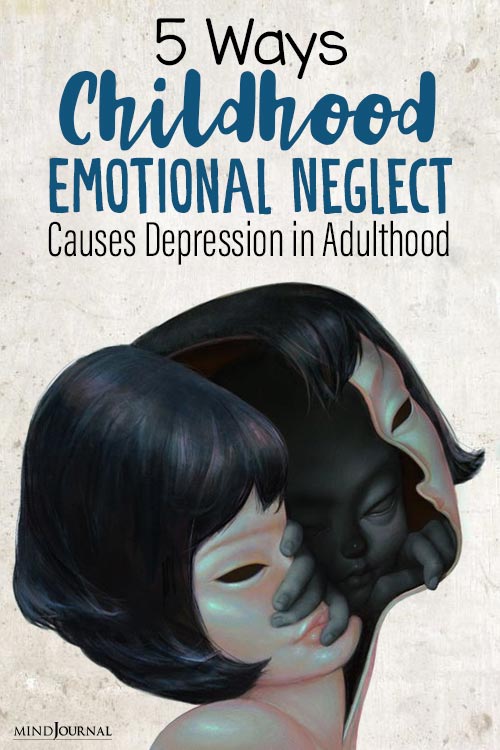
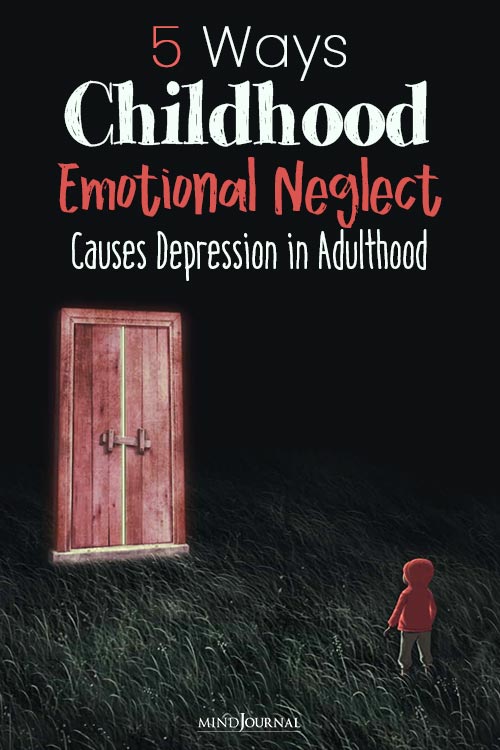
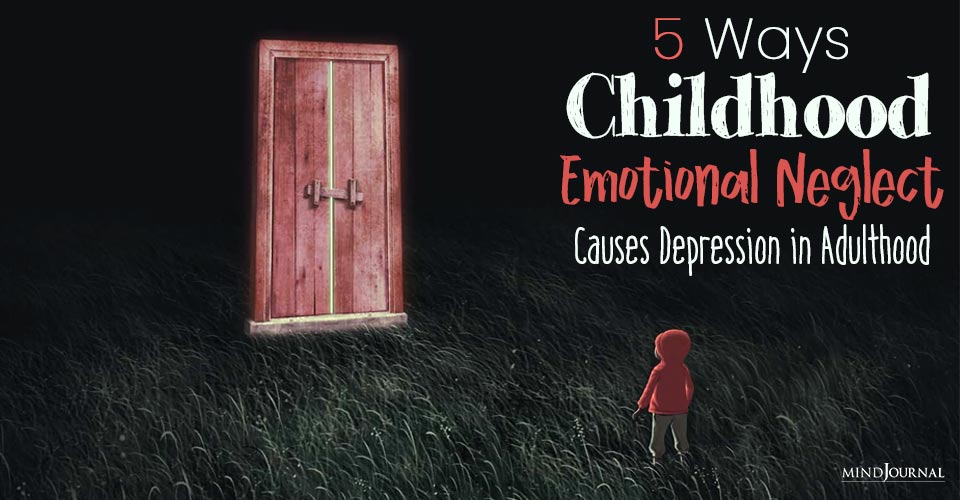







Response
Thank you for this short but to the point information on depression as an adult as it relates to CEN….I have never heard of the term, but the instant I began reading I realized that this was what I was missing all my life. I remember no hugging, kissing, or congrats for good school work. I learned to be pretty stoic, except for occasional emotional outbursts that landed me in my room. Eventually I learned to internalize my emotions, and that was where they stayed. I sincerely hope that I did better with my own children.